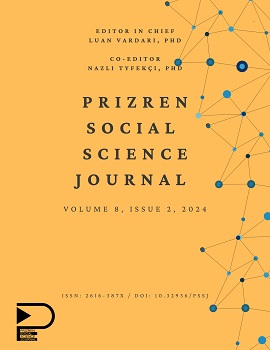Competitiveness of South African Oranges in Asian Strategic Markets: The Case of Main Competitors
Competitiveness of South African Oranges in Asian Strategic Markets: The Case of Main Competitors
Author(s): Lucius Tshwene Phaleng, Jan Johannes Hlongwane, Mmaphuti Andrias NkoanaSubject(s): National Economy, Agriculture, International relations/trade, Economic development
Published by: Association of Scientists and Intellectuals of Kosovo
Keywords: Competitiveness; Comparative Advantage; Relative Trade Advantage; Net Export Index; Constant Market Share; Orange Industry; Asian Strategic Markets; Competitors;
Summary/Abstract: This study employed various descriptive, conceptual, and empirical models to measure South Africa’s competitiveness in the Asian strategic markets concerning its competitors from 2003 to 2022. The competitiveness measurements included relative comparative advantage, the net export index, relative trade advantage, and constant market share analysis. The data were sourced from official databases such as the World Bank, FAO, ITC, export potential map, and World Integrated Trade Solutions (WITS). The South African competitiveness of oranges in the specified strategic markets realized a positive competitive effect of 2.46%, indicating a gain in the market due to increased competitiveness of the fresh food sector in the world market. The RCA values were above 1, with most of the values closer to 20 indicating that South Africa has a good comparative advantage in the production of oranges. Egypt and Greece were the competitors, with average values of 16.9 and 19.7, respectively. The South African orange industry has positive export performance, with values close to 100, which indicates that the country is a net exporter of oranges and is experiencing a sustained comparative advantage. The RTA index values were mostly positive.
Journal: Prizren Social Science Journal
- Issue Year: 8/2024
- Issue No: 2
- Page Range: 43-50
- Page Count: 8
- Language: English

